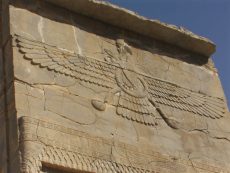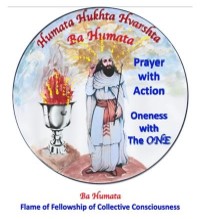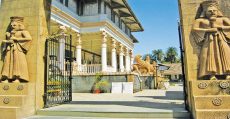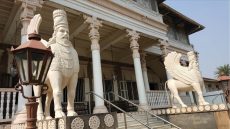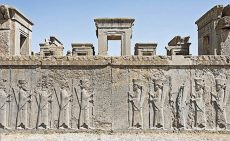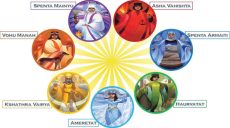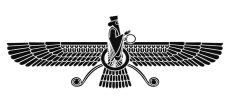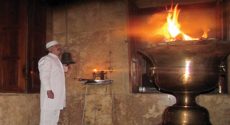. In Iran, I saw the Farohar, proudly emblazoned on the Atash Kadehs in Tehran, Shiraz, Yazd and Isfahan. And, more importantly, in the arid, burning sands on a large plateau, it is emblazoned atop the massive columns at Persepolis. We revere this symbol to the extent that it is synonymous with our religion and […]
Category: Religion
Unity Without Uniformity
3Did you know all our revered Atash Behram fires are made up of 16 different fires? Yes, fires from 16 different sources – including the fire from lightning (the highest source) and a fire from cremation (the lowest source) – are collected. They are then purified and consecrated with an elaborate process, by about 1000 […]
Ba Humata Presents Global Webinar: ‘Building Trust Without Thrust’
On 2nd January, 2021, the Ba Humata (Good Thoughts) Webinar series presents its 13th global Webinar titled ‘Building Trust Without Thrust’, celebrating the Day of Collective Consciousness in honor of Asho Zarathushtra. The Webinar will feature respected Vada Dasturji Keki Ravji – High Priest of Navsari (India), with speakers – Roshan and Rohinton Rivetna (USA); […]
The King Has Returned
Iranshah, the Spiritual Monarch of the community, returned to His duly repaired and renovated abode, on 14th December, 2021. The Holy Fire was re-enthroned in the re-consecrated sanctum sanctorum on Roj Hormuzd (dedicated to the Supreme Divinity) of Mah Amardad (dedicated to the Divinity of Eternity). May Ahura Mazda’s Blessings continue to be showered through […]
Re-enthronement Of Holy Iranshah And The Significance Of Ijashne And Vendidad Ceremony
The main building where Iranshah is enthroned has been through extensive repairs and renovation. The Holy Fire, which had earlier been shifted to the adjoining building within the same complex, will now be ceremonially shifted back to the renovated building, but not before thoroughly purifying the renovated building, both – physically and ritually. Centuries ago, […]
The Essence Of A Zoroastrian Marriage
. The scriptures not only encourage, but also enjoin marriage, including so for the clergy. Vendidad (4.47) states: “O Spitama Zarathushtra! Indeed, I thus recommend hereunto thee A man with a wife above a Magava (Holy man), A man with a family above one without a family, A man with children above one who is […]
Zoroastrians – Then And Now!
Zoroastrian history can clearly be divided into pre-historic and historic. We know about pre-historic times through legend, myths and references in certain liturgical texts. The historic period is recorded in rock inscriptions in Iran as also by the Greek and later on Arab historians. Herodotus (484 - 425 BC), the ancient Greek historian, wrote a detailed […]
Our Environment: A Zoroastrian Perspective
[Representing FEZANA at the Parliament of World Religions – 2021] In Zoroastrianism, there are 7 Amesha Spentas, bounteous immortals, each having a benevolent quality and a responsibility of overlooking each of the wonderful creations of God. This heptad (set of seven) is also considered as the seven steps or commandments, which when followed, benefits individuals […]
The Farokhshi Ceremony
The ‘Farokhshi’ prayer is intended to remember, invoke, and praise the Fravashis of the dead. Like the Afringan, it is generally recited over offerings such as fruits, flowers, milk, wine and water, and before fire. The Fravashi is that power or spiritual essence in a substance, which enables it to grow. It is the spirit […]
‘Gehs’: Relevance And Rituals
Each day of the Zoroastrian calendar is divided into five time zones, known as ‘Gehs’ or segments dedicated to worshipping and venerating Ahura Mazda and the various celestial divinities. The word ‘Gah’ or ‘Geh’ originates from the Pahlavi language, meaning ‘time, period or place’. The five ‘Gehs’ in our religion were set, keeping in mind […]
A Tribute To Dr. Maneckji Nusserwanji Dhalla:
– Championing The Truth And The Ethics Of Zoroastrianism – Noshir H. Dadrawala – Zoroastrian Scholar; Trustee – Bombay Parsi Punchayat: Maneckji Nusserwanji Dhalla was the first and only scholarly priest to be appointed Dastur or High Priest in Karachi, Pakistan. The Avestan term for Dastur is ‘De’ or ‘Deng’, which literally means, ‘one who shows the true path’. The moral and ethical […]
